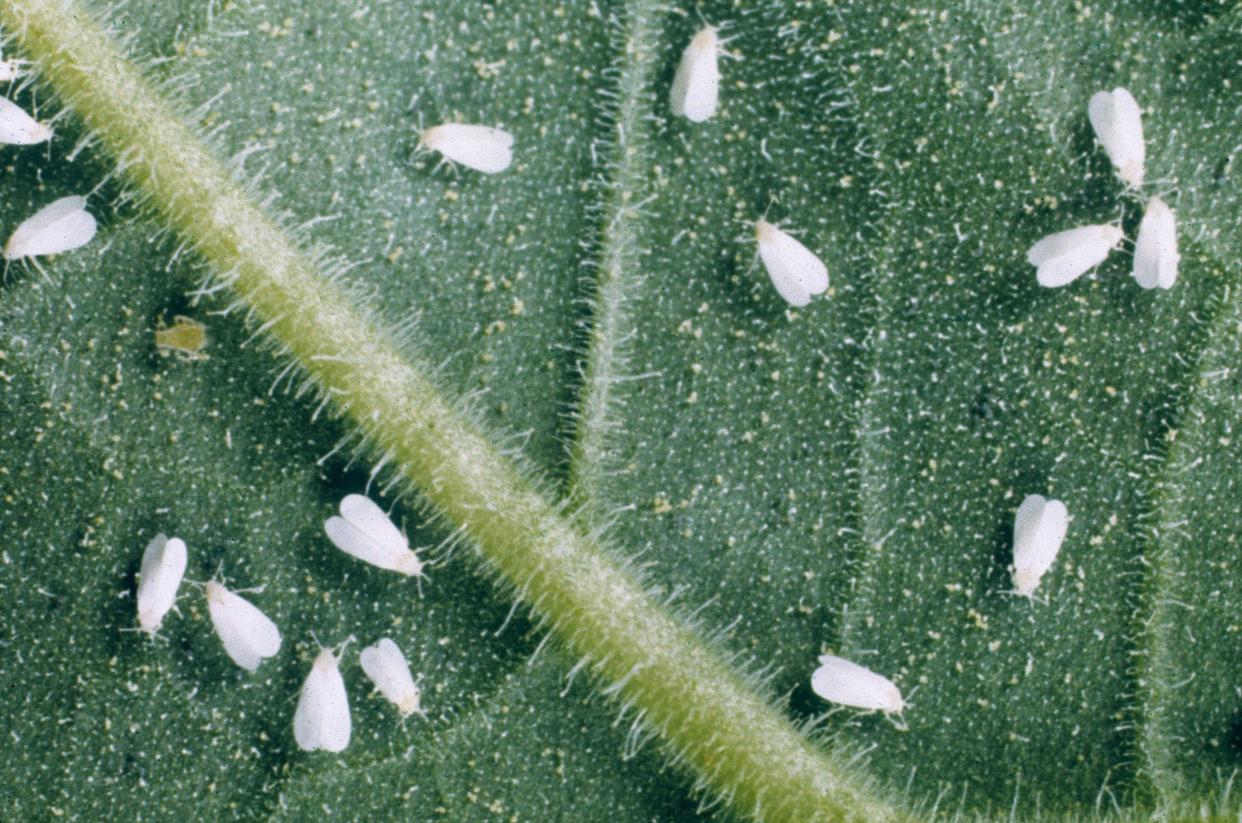Insecticidal soaps: An eco-friendly method of pest control

Most gardeners are good stewards of the land and attempt to control pests using tactics with minimal environmental impact. Insecticidal soaps have become an increasingly popular method of controlling certain insects in a very “eco-friendly” manner.
Insecticidal soaps can be a valuable tool to manage insect and mite pests on houseplants, vegetables, fruits and ornamentals. Soaps control many targeted pests with fewer potential adverse effects to the user, beneficial insects and the environment compared to more traditional pesticides. To be most effective, it's important to understand how insecticidal soaps "work," to know their mode of action, and to recognize their benefits and limitations.
Information for this article was adapted from the University of Colorado Extension and University of Connecticut Extension.
What is insecticidal soap?
Soaps are made when the fatty acid portion of either plant or animal oils are joined with a strong alkali. They are potassium salts of fatty acids. Commercial products contain a blend of selected fatty acid chain lengths.
How do insecticidal soaps work?
Insecticidal soaps kill by suffocation, they appear to disrupt the cellular membranes of the insect, and they remove protective waxes that cover the insect, resulting in dehydration. There is no residual insecticidal activity once the spray application has dried. Insecticidal soaps rapidly degrade and wash off of leaf surfaces. Insecticidal soaps are also an effective leaf wash to remove honeydew, sooty mold and other debris from leaves.
Benefits of insecticidal soap
Insecticidal soaps are most effective on soft-bodied pests such as aphids, lacebugs, leafhoppers, mealybugs, thrips, sawfly larvae (pear and rose slugs), scale insects (especially scale crawlers), plant bugs, psyllids, spider mites and whiteflies. Insecticidal soap has less effect against insect eggs. Insecticidal soap are also less effective against hard bodied pests such as beetles. Some soaps are labeled for suppression of powdery mildew on certain plants.
Soaps have low toxicity to mammals. However, they can be mildly irritating to the skin or eyes. Insecticidal soaps are biodegradable, do not persist in the environment, and they do not contain any organic solvents. Many formulations of insecticidal soap can be used on various food crops up to the day of harvest. Some plants are sensitive to soap sprays and may be seriously injured by them. Read the label to make sure your plant is not one of them.
How to apply
Insecticidal soaps should be applied when conditions favor slow drying to maximize effectiveness, e.g., in the early morning hours with dew coverage or in the early evening. Avoid treating with soaps on hot sunny afternoons, which promote rapid drying. Thorough coverage is vital for the soap to be effective: Spray thoroughly, but not beyond the point of runoff. Repeat applications may also be needed as determined by follow up scouting.
Insecticidal soap mixed in hard water with a high mineral content may be less effective and more toxic to the treated plants. A precipitate (soup scum) may be formed when the metal ions (e.g., calcium, iron or magnesium) found in hard water bind to the fatty acids in the soap. Because insecticidal soaps are toxic to fish and aquatic organisms, do not use near bodies of water.
Making your own
You may think that homemade soap sprays can be a low-cost alternative to store-bought sprays since insecticidal soaps are chemically similar to many household liquid soaps but there is a substantially increased risk of plant injury with them. Dry dish detergent and all clothes-washing detergents are far too harsh to use on plants because of all the additives in them. Some soaps and detergents are poor insecticides. However, there are many features of commercial insecticidal soap products that distinguish them from the dish washing liquids or liquid hand soaps that are sometimes substituted. Commercial soap sprays are generally better because they are designed specifically to control insects and minimize plant damage.
In general, soaps are effective tools in an integrated approach toward pest management if they are used properly with an understanding of their limitations and benefits. Chemical control should be used only after all other integrated pest management methods have failed. As with all pesticides, however, there are limitations and hazards associated with their use. Understand these limitations, and carefully follow all label instructions.
For more information on pesticides and pesticide alternatives, visit the UC IPM website, http://ipm.ucanr.edu. If you have a gardening related question you can contact the UC Master Gardeners at 209-953-6112. More information can be found on our website: http://sjmastergardeners.ucanr.edu.
This article originally appeared on The Record: Insecticidal soaps: An eco-friendly method of pest control

